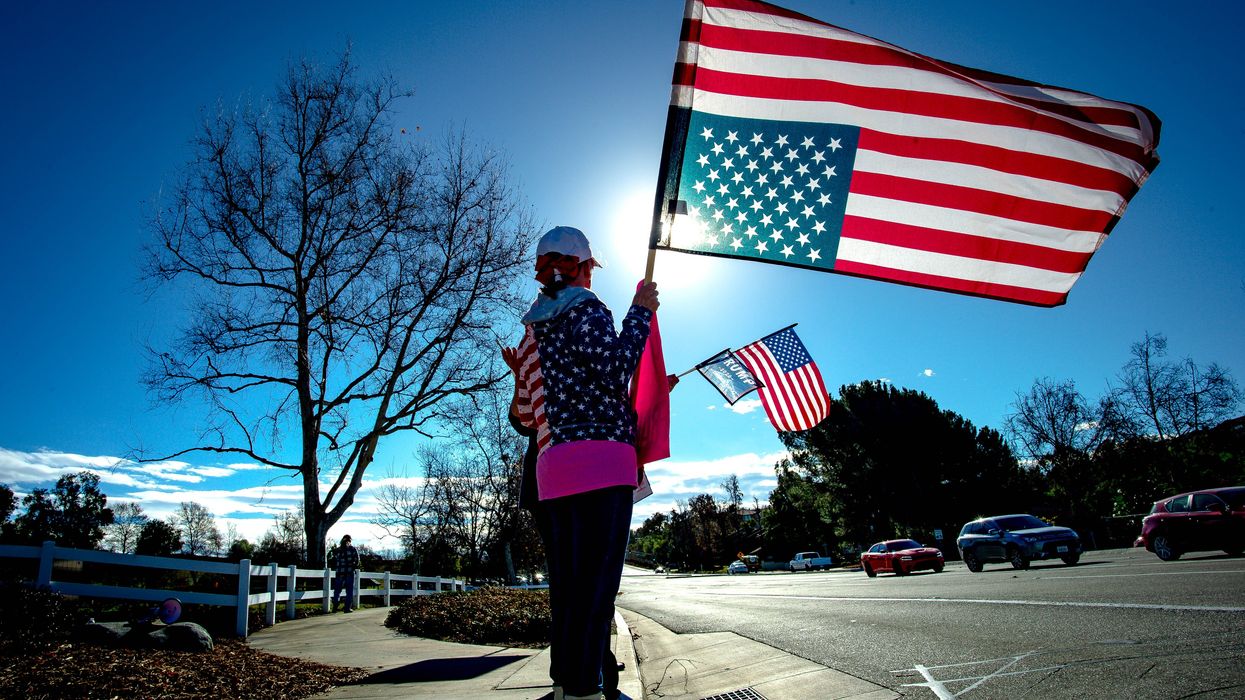Becvar is co-publisher of The Fulcrum and executive director of the Bridge Alliance Education Fund, the parent organization of The Fulcrum.
Comparing the year leading up to the 2020 presidential election to this year, it’s striking how much has changed in the American consciousness. The divisions that deepened after the Jan. 6, 2021, insurrection often seem irreparable. Once unimaginable discord with family, friends and neighbors has now become commonplace. This new reality includes a further divide over what the American flag represents.
In the weeks leading up to Flag Day, I wrote about the difficulty of the flag representing a unifying ideal in a complex country. The flag's meaning has become contentious in a politically divided America, often seen as aligning with conservative ideologies. I offered that to reclaim the flag as a unifying emblem, Americans must engage in open dialogue, acknowledging the country’s complex history and fostering understanding and empathy in search of common ground.
However, many readers disagreed with the idea that dialogue and the search for a new common ideal could bridge the severe partisan poisoning of their patriotism. They felt it was naïve to believe that a conversation about the flag's meaning could reconcile the stark ideological differences between liberals and conservatives.
I still believe that dialogue is the best option we have for overcoming our differences. But I also acknowledge the concrete reasons people are upset by the politicization of the flag. With Independence Day approaching, it is a good time to finish this thought.
In less polarizing times, even the most ardent flag hardliners took things like flag code violations in stride in the spirit of celebrating the Fourth of July. Now, differences in perception and use of the flag mirror the vast differences among Americans in all aspects of life. Seeing flags flown in ways many people feel are disrespectful by those who have positioned themselves as the most patriotic of Americans can cause anger and frustration. The politicization of the flag is taking its toll. And for conflict profiteers, that's precisely the point.
The flag is not new to being used for political purposes. During the Vietnam War, supporters of the war waved the flag, claiming true patriotism against anti-war protesters. Initially, flag-wavers came from both major political parties. By the end of the Vietnam era, the flag became more associated with the Republican Party.
Today, under Trump’s influence, the flag has become a symbol of exclusive, party-branded loyalty and defiance. The Jan. 6 insurrection exemplified this manipulation, with rioters using flagpoles as weapons and carrying flags while committing acts of violence. These individuals, convinced that free and legal elections were corrupted, claimed the flag and called themselves patriots while acting in contradiction to true patriotism. Their actions have deepened divisions and turned many patriotic Americans against the symbol of their country. Many are military personnel and veterans, part of one of America’s most diverse communities. Regardless of their heritage, color, gender, or political beliefs, they have defended the flag and the country it represents. Now, many in the military and veteran communities see the flag as desecrated by partisan politics.
Another form of flag desecration for political purposes is the use of the inverted flag. What should be a signal of dire distress in instances of extreme danger to life or property has become a signal of frustration and anger with opposing political power. Its use in issue-based protests has been observed since the 19th century, but its usage as a partisan symbol was ramped up by Tea Party advocates after Barack Obama’s reelection in 2012 and has reached a fever pitch during the Trump era.
In January 2021, many Trump supporters flew their flags upside-down as an anti-Biden protest, falsely claiming the election was stolen. Last month, it was revealed that even Supreme Court Justice Samuel Alito flew the flag upside-down at his home during that time. This symbol has gained even more prominence since Trump was found guilty of falsifying business records related to the 2016 presidential election. In response, right-wing figures and supporters displayed the inverted flag on social media, accompanied by messages of distress, outrage, and calls for civil war.
I am fully aware of how difficult the task ahead of us is — repairing a country filled with such anger. I also know that dialogue alone will not cure what ails us. The foundation of the Bridge Alliance is the belief that it will take a diverse ecosystem of solutions working in tandem to bring about a healthier country. But I also know that of those solutions, the ones that every individual can move forward every day is dialogue — and we can use points of connection such as the flag to start those conversations. Few alternatives do not include individuals taking action to turn the tide of division; after all, we know that sending a distress signal isn’t going to help. It’s up to all of us to fix it.




















